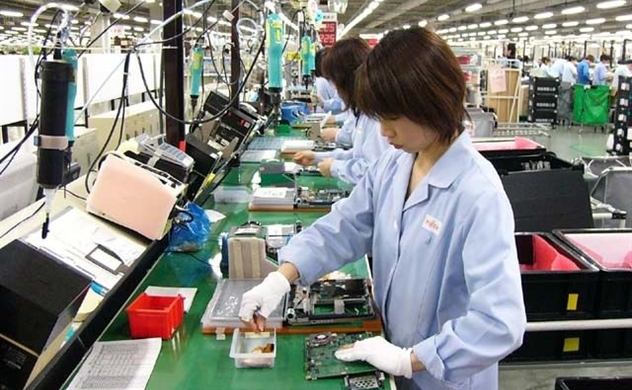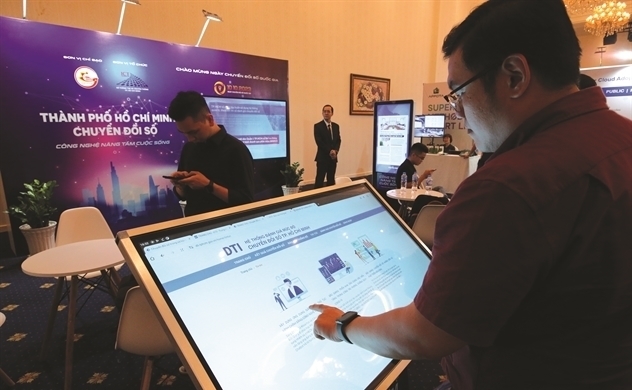Streamers challenge virtual KOLs

Vietnam Livestream Idol program is produced by FPT.
Ly Gia Ky, also known as the "king of lipstick", is the name most frequently mentioned by Chinese media in recent times. Ly Gia Ky's careless response to fans on a livestream sales channel sparked a boycott wave, directly pushing his career into crisis. Livestream revenue has dropped sharply and Ly Gia Ky is facing having to compensate $2.7 billion for not fulfilling the committed revenue with partners, estimated at $30 billion.
Virtual KOLs join livestream industry
More than 1.2 million livestreamers, like Ly Gia Ky reaching 800 million subscribers in China by 2021, according to government data. Over 10 billion things are sold on Douyin monthly. Businesses are new to livestreaming sales with celebrities like Ly Gia Ky, but they've had issues with brand ambassadors.
Unlike before, artificial intelligence is producing virtual salesmen to solve this challenge. Chinese e-commerce platforms like Taobao, JD, and TikTok employ the aforementioned form. Businesses want them because they are "immune" to controversies and can operate constantly at a lower cost than human workers. Virtual people's livestream sales climbed fivefold during Event 618, China's largest online shopping event, in the first half of the year.
Virtual salespeople cost roughly $70 per month, according to statistics. KOLs can cost more than $7,000 for a filming session compared to employing actual individuals (KOLs or KOCs) and a studio. Alibaba, Tencent, Baidu, and others will soon let businesses construct virtual individuals to sell on livestream and connect to their e-commerce platforms.
In China, the time it takes to develop a salesperson's digital twin is shrinking, which might tilt this technology. Tech companies are rushing to accomplish this. Even though Silicon Intelligence Company is establishing the 1-minute goal, it now takes roughly 10 minutes instead of 30. By 2025, iiMedia Research expects the Chinese virtual selling market to exceed $6.5 billion.
Vietnam is like the dawn of livestream sales if China is entering stability. Shopee and Lazada have promoted livestreaming since 2021 to compete with TikTok Shop in Vietnam and Southeast Asia.
This market creates sales "gods" like Pham Thoai or Vo Ha Linh, who set livestream records on the TikTok platform with millions of views and nearly tens of thousands of orders, with revenue of up to tens of billions of Vietnam dong.
Vietnam's 2021–2025 national e-commerce growth master plan targets 35 billion USD in online retail sales by 2025, based on the market's potential. comparable to 25% annual growth and 10% of retail goods and services revenue. New sales methods, such as live broadcasts, will thrive on this figure.
Virtual merchants are launched slowly in China, although AiClip, Dizim, and Aiwow offer similar services in Vietnam.
Predictable future
Returning to China, iiMedia Consulting reported in the first quarter of 2023 that livestream vendors in Hangzhou, Beijing, and Shanghai earn around $1,300–2,000/month. This figure is 30% lower than the previous year.
At the end of 2022, Lagou Recruitment reported that 51% of Chinese livestream vendors earned $1,300 per month, while 30% earned more. The number of enterprises selling items has fallen due to economic challenges, while more participants inevitably lower industry profits. The popularity of virtual livestream merchants may continue to lower industry profits.
 |
| According to Chinese Government data, by the end of 2021, the country had more than 1.2 million livestream sellers like Ly Gia Ky, reaching 800 million users. Photo: CND |
This study includes full-time workers who get base pay and sales commission. Part-time workers get commissions and are considerably more unreliable.
The number of KOLs or KOCs—influencers with at least 20,000 followers or subscribers—in Vietnam is unknown. The fastest-growing influencer platform is TikTok, according to SocialFit under YouNet Media, growing approximately 160% from December 2022 to September 2023. Whether this quantity has reached saturation like China is unknown, but the market has begun to refine. AccessTrade Managing Director Mr. Bui Huy Dung says the trend of picking KOL/KOC has gone beyond branding to include performance in recent years.
This implies influencer marketing programs must analyze sales success in addition to likes, shares, and engagement. In 2023, the year of global recession, firms must boost sales efficiency and reduce expenses. Sales skills will make KOLs/KOCs more noticeable to brands. Brand managers may assess expenses and income to decide whether to work with that KOL/KOC.
Brands also consider KOL/KOC fan file similarities. "Maybe a KOC with a TikTok channel with only 10,000 followers, but the viewers match the target customers the business is aiming for, is still more effective than someone with 10 times the number of followers," Mr. Dung.
Mr. Vo Quoc Hung, Growth Director of Tonkin Media, said that KOL/KOC is a popular profession in Vietnam because it is suitable for young people's dynamism and love of experience on social media. As more and more people participate, the choice of brands with KOCs is still the effectiveness and high interaction with the brand of KOC fans.
KOL criteria may be greater if the first factor they are picked for is competence and influence. "In general, serious content that has the potential to sell in the future will be more popular with businesses in the near future," Mr. Hung.
AccessTrade's Mr. Dung feels that virtual sellers' pressure is unavoidable, especially because "spotless past, perfect working attitude and easy to control" is what the firm prefers to defend its media image. These virtual characters are not genuine unless there is a true link between individuals or technology that allows them to directly communicate, otherwise it is merely a new fad of young people with technology.
"To achieve that level, at the present time real KOLs/KOCs still have a lot of room and development direction," Mr. Dung said.
In China, furniture buyers won't buy from virtual merchants since they can't sit on the sofa or sleep on the bed, which reduces their attraction. Users discover product features from livestreams.
Companies offering virtual vendors are trying to make them more "interactive" like humans, such as understanding how to complain within the limit when livestreams are interrupted or being delighted when they complete. generate revenue.
The Vietnamese market moves 3-5 years slower than technology-originating countries like China and the US. This allows workers and firms affected by that technological trend to see industry developments even while applying it.
Livestream sales, in this case, are a good example of being able to predict technological impacts in the near term. With the rapid growth of e-commerce like the Vietnamese market, KOLs/KOCs play an indispensable role in orienting and bringing products closer to consumers.
Society today has accepted the emergence of this new profession and views it as a professional industry in Vietnam. "And to achieve a high income, like many other professions, KOCs/KOLs are forced to always invest in their career and maintain their reputation to create trust with customers," Mr. Dung said.
Same category news
-
Huyền Hoàng

 TIẾNG VIỆT
TIẾNG VIỆT 
_1120686.png)

















